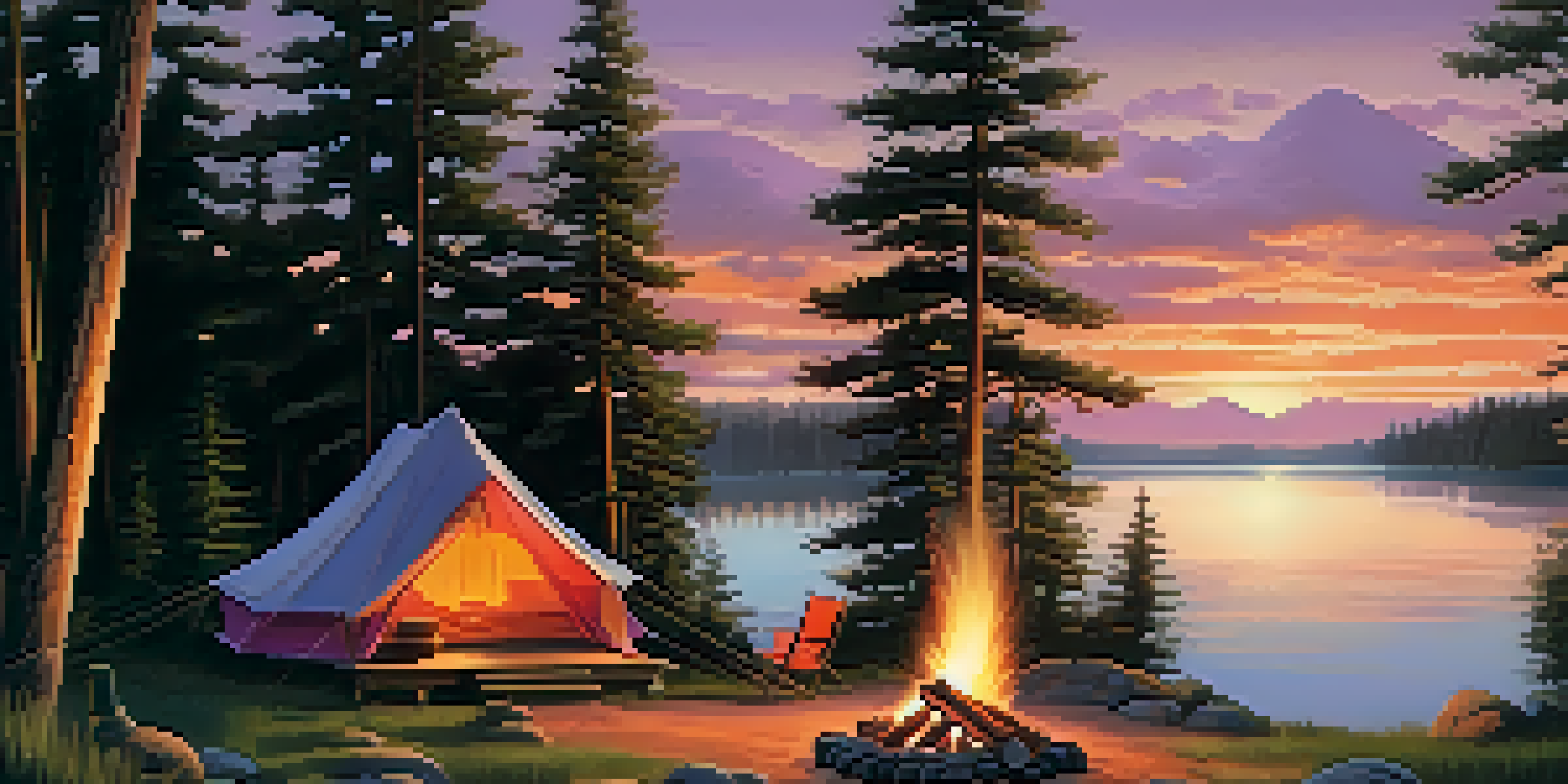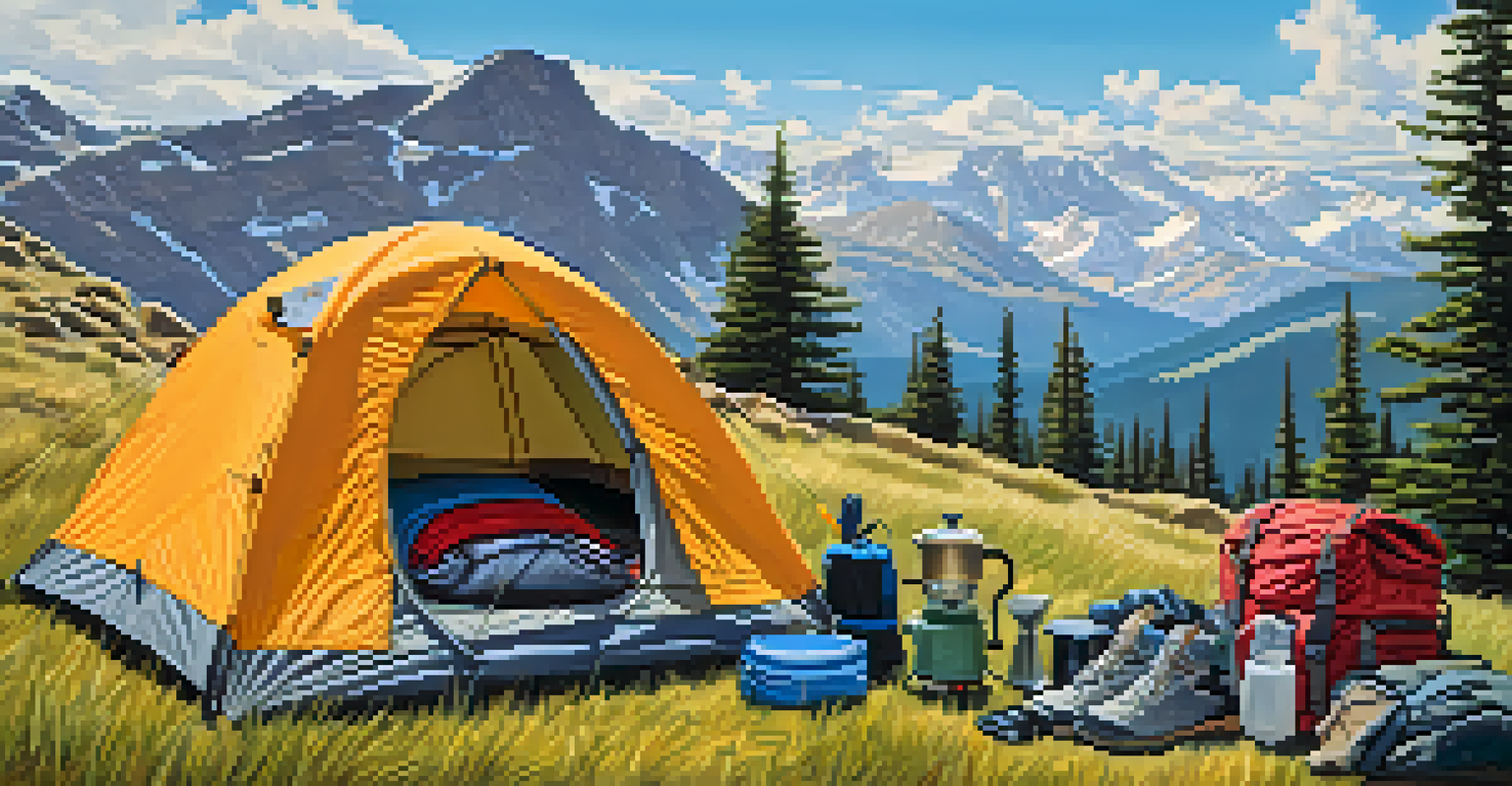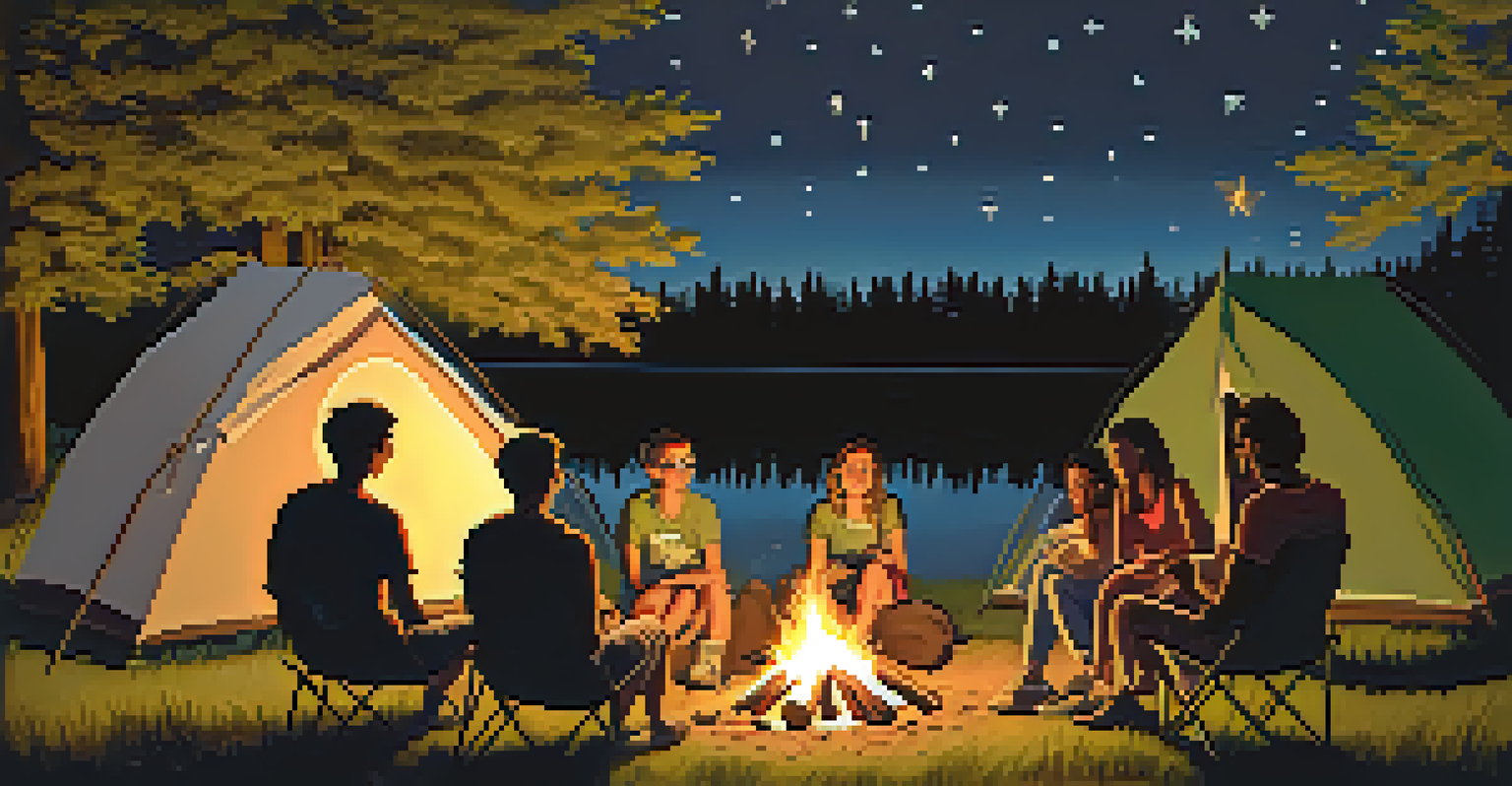Camping Tips for Your Next National Park Adventure

Choose the Right Camping Gear for Your Trip
Selecting the appropriate camping gear is crucial for a comfortable experience. Think about the type of camping you’re doing—will you be hiking deep into the woods or setting up near your car? For example, a lightweight tent is ideal for backpacking, while a spacious tent works well for family camping.
In every walk with nature one receives far more than he seeks.
Don't forget the essentials like a sleeping bag suitable for the season, a reliable stove, and proper cooking utensils. Investing in quality gear can make a world of difference in your comfort levels. Remember, the goal is to enjoy nature, not battle the elements.
Lastly, consider the weather conditions for your chosen national park. Pack extra layers for unexpected temperature drops and waterproof gear if rain is in the forecast. Being prepared can turn a potentially miserable day into a memorable adventure.
Understand Park Regulations and Safety Guidelines
Before you head out, familiarize yourself with the specific regulations of the national park you’re visiting. Each park has its own set of rules regarding campfires, wildlife interaction, and waste disposal. This knowledge ensures you’re respecting the environment while enjoying your time.

Safety guidelines are equally important. For instance, knowing how to store food securely can prevent unwanted encounters with wildlife, such as bears. Many parks provide bear-proof containers, so make sure to use them.
Choose the Right Camping Gear
Selecting appropriate gear based on your camping type ensures comfort and enjoyment during your trip.
Moreover, understanding the park's layout and potential hazards can keep you safe while exploring. Always carry a map and a compass, and consider downloading a park app for real-time updates on trails and conditions.
Plan Your Meals for Convenience and Nutrition
Meal planning can make or break your camping experience. Preparing meals ahead of time and packing them in easy-to-cook portions can save you time and energy at the campsite. Think about quick options like pre-cooked rice or freeze-dried meals that only require hot water.
The wilderness holds answers to questions man has not yet learned to ask.
Don’t forget to include snacks! Hiking can be strenuous, and having energy-boosting snacks like trail mix or energy bars on hand can keep spirits high. A well-fed camper is a happy camper, after all!
Lastly, ensure you pack enough water or a reliable filtration system. Staying hydrated is essential, especially if you’re hiking or spending long days outdoors. A good rule of thumb is to drink water regularly, even if you don’t feel thirsty.
Set Up Camp Early to Enjoy the Surroundings
Arriving at your campsite early allows you to set up without the stress of rushing. This gives you time to familiarize yourself with your surroundings and truly soak in the beauty of nature. Imagine watching the sun set over a serene lake while you sip your evening tea.
Setting up your tent and organizing your gear in daylight also helps ensure everything is in the right place. You’ll be grateful for the extra time when you’re not scrambling to find your flashlight or cooking gear in the dark.
Understand Park Regulations
Familiarizing yourself with park rules and safety guidelines helps protect both the environment and your well-being.
Plus, an early arrival can open up opportunities for exploration. Whether it’s a short hike or simply lounging by the campfire, having that extra time helps you connect with nature and unwind.
Stay Connected While Embracing Nature
In today's digital age, staying connected is important, even when you’re out in nature. Share your adventure with friends and family via social media, but remember to be mindful of your surroundings. Use your phone primarily for navigation and emergency contacts.
However, try to unplug and fully immerse yourself in the experience. Consider setting specific times to check your phone, allowing you to enjoy the tranquility of the park without constant distractions.
Having a portable charger can help balance staying connected and enjoying nature. This way, you can capture those stunning sunset photos without worrying about your battery dying.
Respect Wildlife and Practice Leave No Trace
Encountering wildlife is one of the highlights of camping in national parks. However, it’s crucial to observe animals from a safe distance and never feed them. Feeding wildlife can disrupt their natural behaviors and lead to dangerous situations for both you and the animals.
Practicing Leave No Trace principles helps preserve the beauty of these parks for future visitors. This means packing out all your trash, minimizing campfire impact, and staying on designated trails to protect fragile ecosystems.
Engage in Activities Beyond Camping
Exploring various activities and joining programs enhances your experience and fosters connections with fellow campers.
By respecting wildlife and the environment, you contribute to the longevity of national parks. Your efforts ensure that these beautiful spaces remain untouched for generations of campers to enjoy.
Engage in Activities Beyond Camping
While camping is the main event, don’t forget to explore the various activities available in national parks. Hiking, kayaking, and wildlife photography are just a few options that can enhance your experience. Each park offers unique trails and sights that shouldn’t be missed.
Consider joining ranger-led programs or educational tours to learn more about the park’s natural history. These experiences can deepen your appreciation for the environment and create lasting memories.

Additionally, engaging in group activities can foster connections with fellow campers. Whether it’s sharing stories around the campfire or hiking together, these shared experiences can make your adventure even more special.